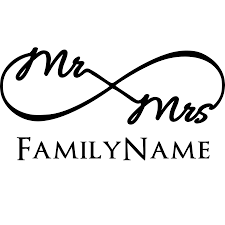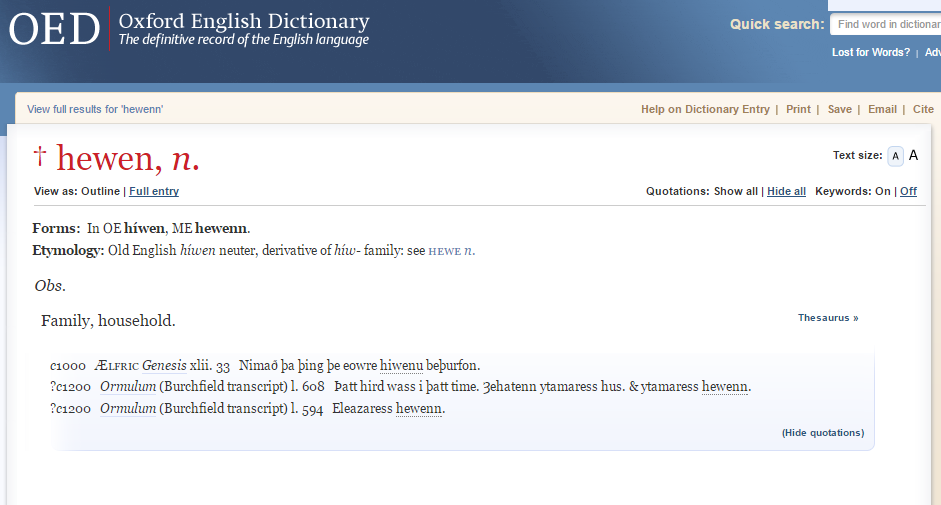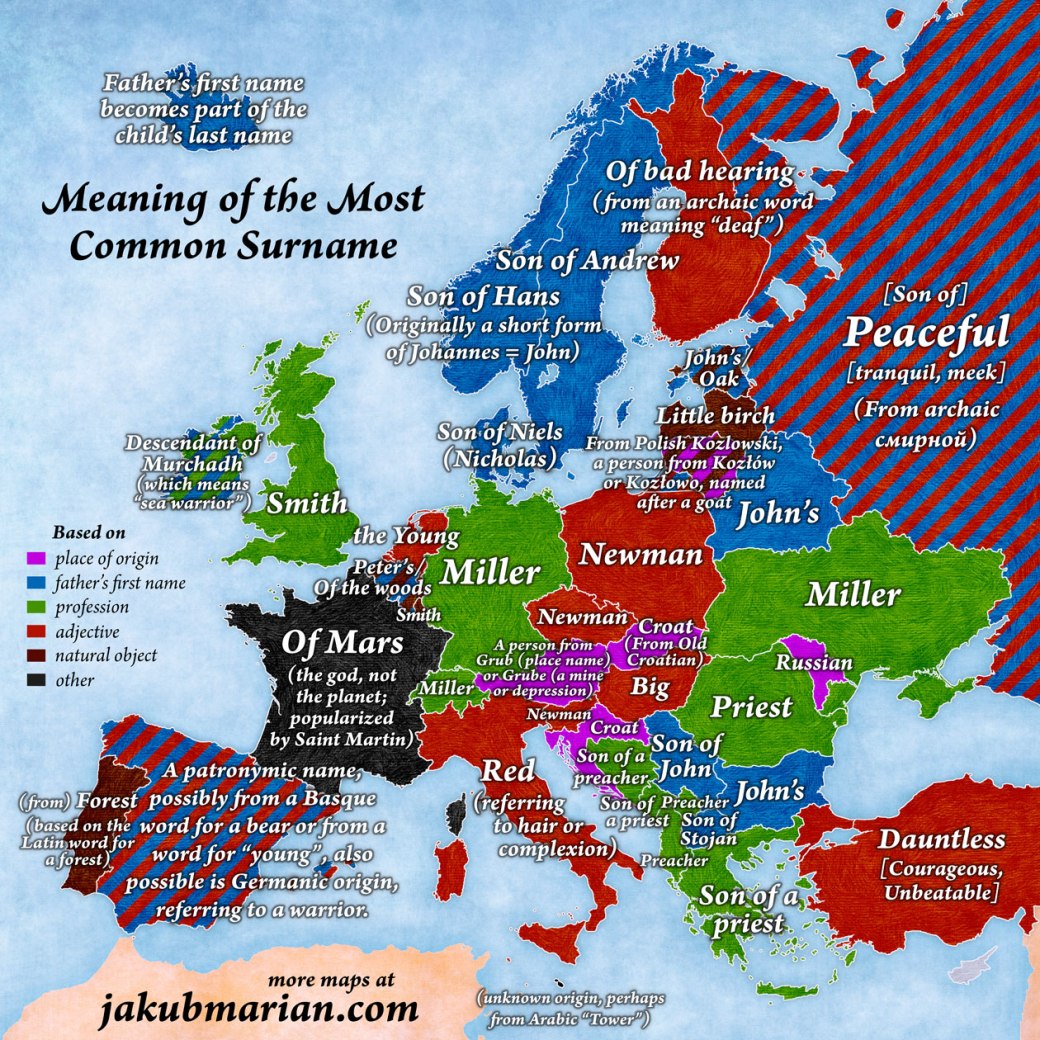Naming and Identity
Naming and identity are deeply entwined. Our names are so subjectively powerful that we can distinguish them from otherwise unintended and unimportant noise as early as 5 months old (known as the Cocktail Effect). They are the linguistic representation of identity, and they offer a lot of information about us, often indicating our gender, age, and socioeconomic background. In fact, some people go so far as to argue for nominative determinism; that is, names as an indicator of future socioeconomic wellbeing. Certainly, some research reveals the surprising statistic that more seashell shops are owned by Sheryls and Cheryls than other names, that alphabetic order has been found to correspond with success, and that people with unusual names are more likely to commit crimes.*
As such, changing names is an important personal undertaking that is often connected with broader culturally significant events. The changing of a generic title alone carries great significance, whether through marriage (Miss to Mrs), professional development (Miss to Dr) or recognition of achievement (Miss to Dame). While people have many and varied reasons for changing their personal name, the most common name change in Anglophone society is a woman’s adoption of her husband’s surname upon marriage.
Unusually, in my case, marriage had nothing to do it.
Indeed, when the conversation of names first became relevant, I vaguely assumed that I would one day adopt some future husband’s name, as I had assumed my whole life.
Rather, the prospect of publishing (which for my media-savvy generation is connected with a sense of personal branding) forced me to sit down and consider what name I would use for academia. This consideration of a publishing name is remarkable in academia only in how unremarkable it is – even males need to decide whether they are First Name Surname, Initial Surname, First Name Second Name Surname, or any other combination of their available names.† Inconsistency in publishing is not catastrophic – we can acquire an ORCID number that is associated with our publications forever, and can trace changes in our publishing name – but it does make everything easier. So the name that I would publish under for the rest of my life seemed worthy of proper deliberation.

Although marriage had nothing to do with this initial prompt to think about the issue, it immediately became the crucial concern. Talking with fellow female academics about the problem I found that they had various solutions: get married and change your name before you publish anything, publish and continue publishing under your maiden name even after you change your legal name post marriage (to maintain publishing consistency), or publish under your maiden name and then publish under your married name, and just learn to deal with your references being tied to two different names. Yet perhaps what struck me most was that no one that I personally talked with, and indeed very few women who I had ever met, had kept their maiden names.
This sort of thing really interests me, so I started to explore the issue in earnest. Turns out that it is increasingly normal for women to take their husband’s surnames at marriage in Anglophone countries. A study of New York newspaper announcements shows that the number of women keeping their own surname peaked in the 1990s at 23%, having risen from 9% in the 1980s and slumping back to 18% in the 2000s. Of course, New York is statistically more affluent and educated than the rest of American, which are strong correlates for name-keeping in women, and according to a much larger (though self-sampled) survey by wedding website The Knot in 2011 the percentage of women keeping their own surname is only at 8%.
Even in Norway, where gender equality is part of the official ideology, the percentage of women keeping their surnames has barely changed from the 1980s: from 16% to 22%. The authors of the study suggest that perhaps in a country with high cohabitation such as Norway, the tradition of women adopting the husband’s surname helps to symbolically demarcate marriage from de facto. They also suggest that as gender equality increases, the importance of signalling equality and autonomy through name-keeping has decreased.
There are other cultures, however, where this patriarchal surname trend is avoided or even reversed. For more information, see my fun Appendix!
What does it all mean?
Well, that depends on who you ask. The surname debate provokes strong responses from people both for and against the dominant tradition, as demonstrated by the decision of Amal Alamuddin’s to become Amal Clooney upon marriage. The Internet howled in response, some furious that she had seemingly betrayed her progressive feminist agenda, some furious that anyone would ever contemplate not taking a husband’s surname. Most of the comment threads went in circles as they talked over each other, but what the fury did draw out are some of the recurring justifications both for and against adopting a husband’s surname.

Arguments For and Against Taking a Husband’s Name
Commitment and New Identity
This article from the Telegraph illustrates the logic of changing her name nicely: “the biggest reason is love… When you share a surname with someone, it makes it clear that you’re on the same team.” For the author there, and for many people, the act of taking on a shared name is symbolic of commitment, and allows the couple to go forward into the future as a couple.
Yet, on the flip side, we do not assume that men are less committed to marriage on the basis of not adopting their wife’s name, so we cannot therefore assume that name adoption is a good indicator of commitment.
Tradition
The Anglophone western culture has a very strong tradition of women adopting their husband’s name upon marriage. Of course, tradition for the sake of tradition is not a strong argument, as traditions always continue to change to remain relevant. Even within the traditional institution of marriage there is considerable change: mixed race marriage was forbidden until 1967 in America, and homosexual marriages are being legalised in an increasing number of countries.
But perhaps most telling is the history of the surname tradition within Anglophone culture. Brought with the Norman conquest of England was also coverture, whereby upon marriage a woman becomes the property of the husband, and so takes on his name rather than her father’s name (see this BBC article for more about this history).
It is problematic and even a little absurd to argue that the history of a tradition should dictate its current and future usage – after all, the gay marriage debate is making marriage more relevant and modern than ever – but if the history of the tradition cannot be used against it, then the mere fact of it being a tradition should not be an argument in its favour.
Heritage and Legacy
The heritage argument is that by carrying on a surname one carries forward a family legacy, maintaining continuity with previous generations and demonstrating pride and solidarity with one’s family past. This is all well and good except for the obvious, which is that it only carries on the paternal legacy. Every argument in favour of a paternal surname can also be used against it: The more one emphasises the significance of a surname with regards to heritage, the more one must discount any maternal heritage. The more one emphasises connection with continuity, the more one must discard half the family.
Very few people actually think this way of course – most people do not feel detached from their maternal grandparents just because their names do not match. I like hearing about the women in my family history, and in every direction they have different surnames every generation, without actually disappearing from a line of maternal heritage. Moreover, most women do not feel that they are abandoning or cutting ties with their immediate family when they adopt their partner’s surname. Yet this argument is one of the most common ones made. Somehow we are convinced that carrying on a paternal surname is important, without attaching any particular importance to the discarding of a maternal surname.

Cultural Pressure and Choice
While these arguments are interesting, and they should be debated rigorously, I also think that they distract us from the bigger issue: cultural pressure. No one is persuaded in either direction by the arguments above, for if people really did think that commitment and shared identity was the most important thing, then more men would be likely to take a woman’s surname when the woman was closer with her family, or if her surname was more convenient. Instead, self-sampled opinion surveys in Mens Health suggest that over 90% of men are strongly against taking a woman’s surname, even if she requested it. This suggests that these arguments are merely superficial coverings on the actual reasons behind name changing or maintaining behaviour.
Consciously or not, there is a pressure to conform to the societal norms, and in surname changing behaviours, we are actually becoming more conservative. In a study of 1990 and 2006 surveys of college students, students in the 2006 survey were three times more likely to say that if a woman didn’t take her husband’s last name upon marriage, she was less committed to him and their future together. This cultural pressure means that a decision to adopt a husband’s name is relatively unremarked upon, whereas any other decision goes against the grain. It is, in spite of the logistics of changing names, actually culturally easier for a woman to adopt her husband’s surname than keep her own.
Yet before jumping to any conclusions about how the opposite decision, of maintaining a maiden name, is a moral choice made in a cultural vacuum, it is worth remembering that there is a competing pressure for certain women not to change their names. After all, the Internet response at Amal Clooney was not all directed at her having made the right decision. As a left-leaning and highly educated woman, I am in a sub-culture that is more likely to promote name-keeping behaviour, and I do not think that my decisions are free from equivalent cultural pressures on those who do change their name just because the pressure comes from the opposite direction.
Of course, because of my political and tertiary trained tendencies, I do find feminist arguments genuinely compelling. After all, the weight of “commitment” is clearly unequal, and the history of the tradition deeply problematic.
Then there are the very sobering disadvantages of adopting a partner’s name with regards to domestic problems. Men who marry, divorce and remarry do so with logistical ease, with no need to declare anything: they are the same person through each process, by name. On the other end of the gender spectrum, most women adopt the surname of her husband upon marriage, when one in three marriages ends in divorce. At the end of that divorce, she is tied to the name of a husband she is no longer married to. Even worse (and here I am referring to the real scenario an acquaintance of mine found herself in), a woman can be trapped with the name of the man who has committed domestic violence upon her and from whom she has been forced to flee. We all shudder at the thought of forcing a girl to marry her rapist, but through the cultural practice of adopting a husband’s surname, some women are indeed left in the scenario of bearing the name of their rapist or their abuser. Even in the more common case of a somewhat mutual divorce, a woman is left with the identity of the man who is no longer her husband.
These arguments about the inequality of surname traditions are important, but they are no less the product of culture than arguments for name changing, and neither side is necessarily “right” – they just see things from different perspectives.

Naming and Identity
Ultimately, then, naming practices are dominated by cultural norms. Seemingly individual choices are deeply influenced by our preconceived ideas, and although I had once assumed that I would take a partner’s name (as per the norm in Australia), years of immersion in tertiary culture and much reading of opinion pieces about gender late at night have influenced me to reconsider (which, while still a minority decision even in higher education, makes this position more likely than for those not exposed to that culture).
Yet a lifetime of assuming that I would lose my maiden name is not without effect, and so while I am strongly attached to the name as an indicator of my family, it is a name that I had always assumed would not always be a part of my identity. Academic concerns about being cited hadn’t persuaded me to retain my birth surname either, since it is so common as to get lost within Google Scholar. I am Jessica, certainly (and Rose, thanks to my cousin), but I had always been waiting to find a new surname.
So I just went out and found one.
Hewenn is an old and archaic Middle English word, which appears briefly in that form in Orm’s 12th century manuscript (the Ormulum – see, names were important then too!) before disappearing. With roots in hewe, which denoted a household, Orm paused over this word twice in his text to differentiate it from hus, meaning house. Rather, hewenn meant what a surname has always meant: family.‡ Indeed, Hewe was an archaic surname for precisely this reason.
This family name which means family name came with other advantages too. Hewenn sounds like a surname because it already is one, homophonically, through existing surnames: the French Huon, and the Scottish Hughan (although Hewenn, being an entirely Anglophone word, actually has the most intuitive English spelling). Best of all, this homophonic relationship came with pre-existing connotations, for the Huon Valley in Tasmania was a special place for me, and Huon also featured in the topography of my childhood countryside. The word is entirely Anglophone, which is my language and cultural heritage, but representative of the landscape that I feel connected with.
Topping it all off, the word is not used as a surname in that spelling (spelling variations and a few individuals scattered through history aside), leaving it largely free from associations with other families, and leaving even the bottomless Internet with only a few entries. I would be Google Scholar searchable! And it felt… right. Just as some women who keep their own surnames do so because it feels right, and most women who adopt their partner’s surname do so because it feels right. Conversations about surnames and identity are important – the highly gendered responsibility for commitment is problematic and should at least be opened discussed – but ultimately individuals will make a choice that feels right to them at the time.
I started this discussion with the musing that names are indicators of identity. By taking on a new name I am embodying a new identity, as well as reflecting aspects of my left, educated, millennial, individualistic outlook. And I’m okay with that. After all, I am the person who cares about symbolism enough to go fossicking for the diamonds for my wedding ring!

* I would not personally argue for nominative determinism, since those trends are more likely to be correlational than causational, but they are interesting even so. However, recent research has demonstrated the surprising result that people subconsciously adapt their appearance for cultural assumptions about their name, resulting in statistically significant demonstrations that, say, a Jessica looks like we would expect a Jessica to look.
† Some males with common surnames go through processes more similar to me, whereby they consider changing their name.
‡ Hewenn has also been used to denote rascals and household domestics. But in its short period of usage, it usually denoted family and household.
I would like to thank all of the many people in my life who have been made to suffer through my surname philosophising for the last few years. My conversations with friends from both ends of the political spectrum have given me perspective on my own decision, and respect for the strongly held and varying positions one can take on this issue. Most of all, I would just like to emphasise that this decision is one made by me and for me, and is in no way a judgment of any other decision that could have been made.

Appendix: Anglophone and European Surname Practices
In most Spanish speaking countries, children formally have two surnames: the father’s surname and the mother’s. This allows easy identification of generational differences, even when children are given first names that are the same as a parent or grandparent. In marriage a woman may choose to add her husband’s surname to her name, but she will always keep her family name. This tradition also explains why such a high proportion of Hispanic women in America don’t change their surname when they marry. (Indeed, in the “Women’s Marital Naming Choices in a Nationally Representative Sample” study of 2009, women of Latin American origin were excluded because their cultural norm was so far removed from the non-Hispanic population’s naming preference.)
Iceland, such is the national pride in the purism of their language, bucks the European trend of fixed surnames and has maintained its ancient Nordic patronymic system. This was even put into law in 1925, when the adoption of new surnames was forbidden, and as a result less than 7% of the population possesses a fixed surname. As such, when a child is born, they are given a first name (their central identity, indexed in the Icelandic phone book) followed by their father’s name and the suffix -son or -dóttir (while matronymic surnames are accepted they are rarer). This has its own problems, and the Personal Name Committee is widely unpopular in Iceland (criticised for both lenience and rigidity). Most curious is the strict rule of unambiguous gender in naming, which although mocked, does reflect the Icelandic practice of feminism, which emphasises equal rights without necessarily questioning sexual difference.
And in perhaps the most divergent example, in 1983 a law was passed in Greece that legally required individuals of both sexes to keep their maiden names! (See this article.) The law was laxed in 2008, when couples were allowed to add their partner’s name to their birth name. Children can be given the surname of either parent. As the article linked above points out, however, a similar system has been in place in Iran for a century, and brings both benefits and disadvantages.
A broad look at European naming practices is in Valetas’ “The surname of married women in the European Union”, which brilliantly compared practiced and preferences across the EU. A particularly interesting example is that of France. Since the French Revolution in 18th century, all individuals may only legally be known by their birth name (except in certain circumstances, such as unfortunate names, which one can apply to change). However, at the time of the 2001 study, most women adopted their husbands name as “usage” names. Yet this created the biggest discrepancy between practice and satisfaction within the EU in the study, with 91% of women adopting their husbands surname for usage, and yet with 40% of women report wishing to use both their maiden and their husbands name. Valetas argued that this disparity could be attributed to dissatisfaction with a legal prohibition of transmitting the mother’s surname to children, because in desiring to have the same surname as their children, women were implicitly forced to take on the surname of the children’s father. Since 2005, this law has been lifted to be more in line with EU equality rights in the transmission of names.
The connection of parents to children through surname is not just important to the mother, but is arguably even more important to the father. On the Guardian podcast What would a Feminist Do? the guest academic Laurie Scheuble points out that while women can be certain they are the biological parent of their offspring, for men, a continuity of surname makes them more likely to be invested in their (particularly male) children.